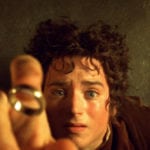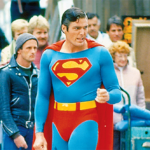 History
History  History
History  Health
Health 10 Everyday Activities That Secretly Alter Consciousness
 History
History Top 10 Historical Disasters Caused by Someone Calling in Sick
 Animals
Animals 10 New Shark Secrets That Recently Dropped
 Movies and TV
Movies and TV 10 Forgotten Realities of Early Live Television Broadcasts
 Technology
Technology 10 Stopgap Technologies That Became Industry Standards
 Weird Stuff
Weird Stuff 10 Wild Facts About Taxidermy That You Probably Didn’t Know
 Travel
Travel 10 Beautiful Travel Destinations (That Will Kill You)
 Miscellaneous
Miscellaneous 10 Modern Marriage Rituals Born from Corporate Branding
 Weird Stuff
Weird Stuff Ten Bizarre Visions of 2026 from Fiction
 History
History 10 “Modern” Problems with Surprising Historical Analogs
 Health
Health 10 Everyday Activities That Secretly Alter Consciousness
 History
History Top 10 Historical Disasters Caused by Someone Calling in Sick
Who's Behind Listverse?

Jamie Frater
Head Editor
Jamie founded Listverse due to an insatiable desire to share fascinating, obscure, and bizarre facts. He has been a guest speaker on numerous national radio and television stations and is a five time published author.
More About Us Animals
Animals 10 New Shark Secrets That Recently Dropped
 Movies and TV
Movies and TV 10 Forgotten Realities of Early Live Television Broadcasts
 Technology
Technology 10 Stopgap Technologies That Became Industry Standards
 Weird Stuff
Weird Stuff 10 Wild Facts About Taxidermy That You Probably Didn’t Know
 Travel
Travel 10 Beautiful Travel Destinations (That Will Kill You)
 Miscellaneous
Miscellaneous 10 Modern Marriage Rituals Born from Corporate Branding
 Weird Stuff
Weird Stuff Ten Bizarre Visions of 2026 from Fiction
10 Iconic Americans Who Aren’t American
Some people are so ingrained in American culture that we take them for granted as American or just don’t think about their roots at all. Many of the major contributors to American culture didn’t begin life in America, though, and their stories are absolutely inspirational.
10Henry Kissinger
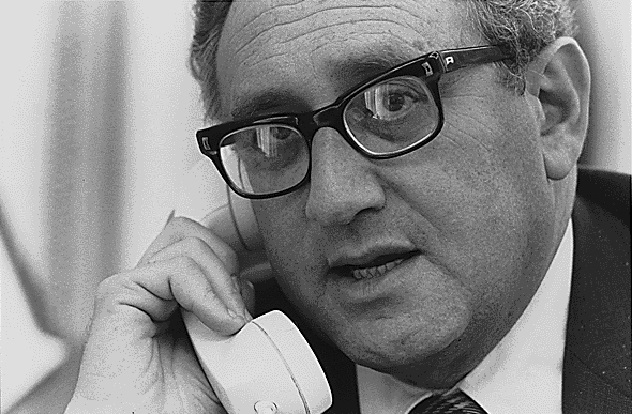
Best known as Richard Nixon’s Secretary of State and the man responsible for countless foreign negotiations with Vietnam and China through the 1970s, Henry Kissinger played an integral role in American foreign policy as early as the 1950s, when he acted as a special consultant to the Department of State and the National Security Council’s Operations Coordinating Board. Even though his name is synonymous with American foreign policy, he didn’t become a United States citizen until the age of 20. Born Heinz Alfred Kissinger on May 27, 1923, he and his family immigrated to the United States in 1938.
By that time, of course, Germany was an increasingly dangerous place for Jews like Kissinger. Often targeted by Nazi Youth members, he went through a rebellious period of trying to bend the rules around the restrictions imposed on him because of his faith. When he was 15, his family decided to leave their homeland. When they arrived, the young Kissinger went right to work in a factory that made shaving brushes in order to make ends meet. At the same time, he enrolled in George Washington High School in New York, where he first learned to speak English.
9Eddie And Alex Van Halen

Van Halen first hit the charts in 1978, and by the 1980s, hits like “Jump” and “Hot For Teacher” made them poster children for American hair metal. However, the group’s founders and namesake, Eddie and Alex Van Halen, were both born in the Netherlands to a classical musician named Jan, who moved his family to California in 1962.
A clarinet and saxophone player, Jan Van Halen came to the Golden State looking for work as a freelance musician. He frequently joined wedding bands for gigs to help his family make ends meet, washing dishes in his downtime. He shared his love for music with his sons, who were taught to play piano and given regular classical music lessons in the Netherlands.
Once in the United States, the family discovered rock and roll. Interestingly, it was Alex who started out with the guitar, the instrument Eddie is legendary for revolutionizing, while Eddie began his rock career by learning to play the drums. Eventually, they swapped instruments and formed a band they called Mammoth before recruiting Michael Anthony and David Lee Roth, changing the name, and taking the Pasadena bar circuit by storm.
8Alexander Graham Bell
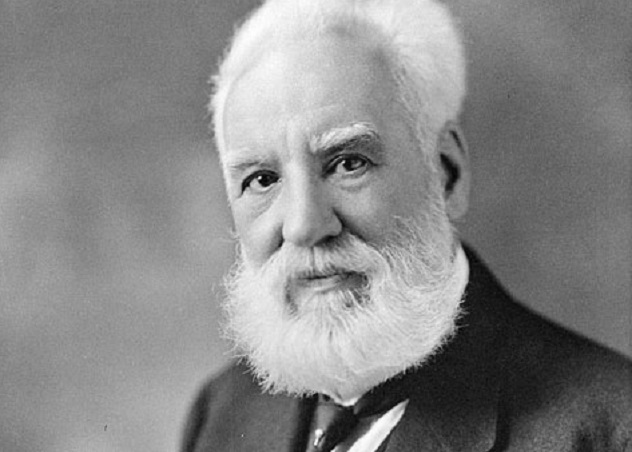
When it comes to great American inventors, Alexander Graham Bell is at the top of the list. While much of his work was done in America, Bell was born on March 3, 1847 in Edinburgh, Scotland. He was named after his grandfather, who was a well-known Scottish actor and speaker. Bell, his father, and his grandfather all shared an incredibly powerful speaking voice, which was considered something of a family characteristic. In addition to his stage work, Grandfather Bell was a professor who taught public speaking, and his son Melville followed in his footsteps with his study of speech pathology and elocution.
In 1844, Melville Bell married a deaf artist named Eliza Grace Symonds. It was Alexander Jr.’s strong bond with his mother, who desperately wanted to hear her sons speak, that turned his brilliantly inventive mind toward communication. While his first invention was a device for husking corn that he made when he was 14, he soon began studying how the human body made sound.
While he was studying at the University of London at age 16, he mistranslated a German work that he thought suggested sound could be transferred over a wire, forming the basis for his work in America. In 1870, after his brothers died of tuberculosis, the family moved to Ontario, Canada. The next year, Bell traveled to Boston, where he became a teacher at the Boston School for Deaf Mutes and met his future wife, Mabel Hubbard.
7Liz Claiborne
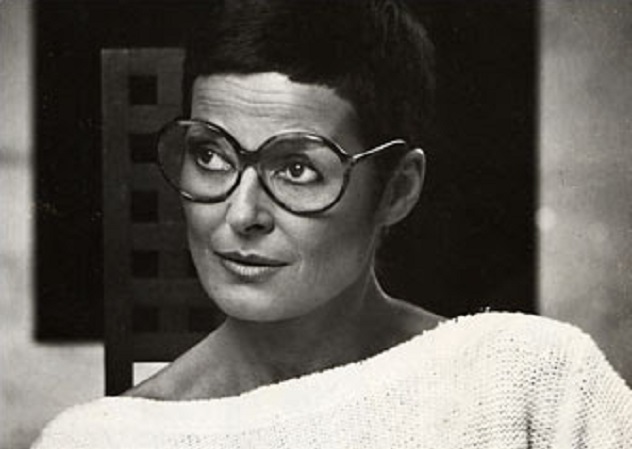
American fashion would look very, very different without the influence of Liz Claiborne. The first woman to found a Fortune 500 company, Claiborne is credited with innovation of affordable but professional clothing for women and especially for creating the idea of pants, shirts, blazers, and blouses that could be purchased individually and combined into a number of different outfits.
Born Anne Elisabeth Jane Claiborne on March 31, 1929 in Brussels, Belgium to American parents, Claiborne had something of a surreal, storybook youth. She and her parents followed her banker father’s career around Europe for most of the year, spending summer vacations in Maryland and Louisiana. She studied in Nice and Brussels, dropped out of high school, and won a design contest held by Harper’s Bazaar that kick-started her desire for a fashion career. When she was 21, she went to New York City with her father and decided to stay. According to Claiborne, he let her out of the car, handed her $50, and wished her luck.
6Samuel Goldwyn
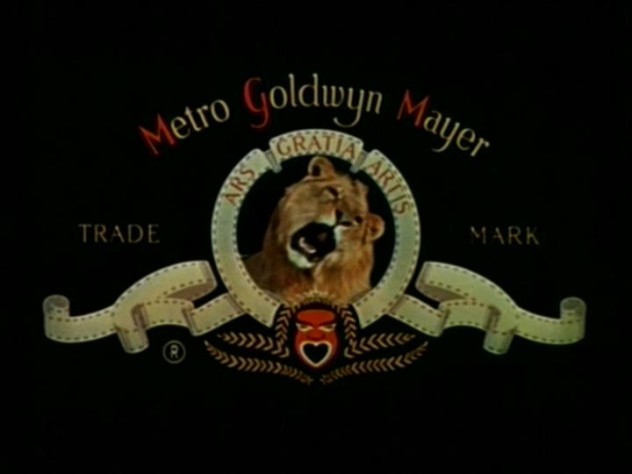
Samuel Goldwyn is much more well known in the context of his company, Metro-Goldwyn-Mayer, or MGM. Their mascot, Leo the Lion, had his paw prints immortalized in the pavement at Grauman’s Chinese Theatre, and the company counts Clark Gable, Jean Harlow, Fred Astaire, Errol Flynn, and Greta Garbo among their stars.
The man behind Ben-Hur and Singin’ in the Rain was born Schmuel Gelbfisz. In 1895, Schmuel was just 16 years old when he saw his family fall apart. That’s when the eldest son in a family of Hasidic Jews left Warsaw, Poland and walked to Hamburg, Germany, covering about 800 kilometers (500 mi) along the way. He didn’t have any money to travel further, but a kind glove-maker gave him the money he needed to get to London. He stopped for a while in Birmingham before getting on a boat to Nova Scotia. From there, he settled in a small town in New York.
Once in the US, he called himself Samuel Goldfish. He became known as Samuel Goldwyn after he joined forces with another up-and-coming entertainment icon, Cecil B. DeMille, and vaudeville star Jesse Lasky to make the first movie filmed in what would later be known as Hollywood.
5Joseph Pulitzer
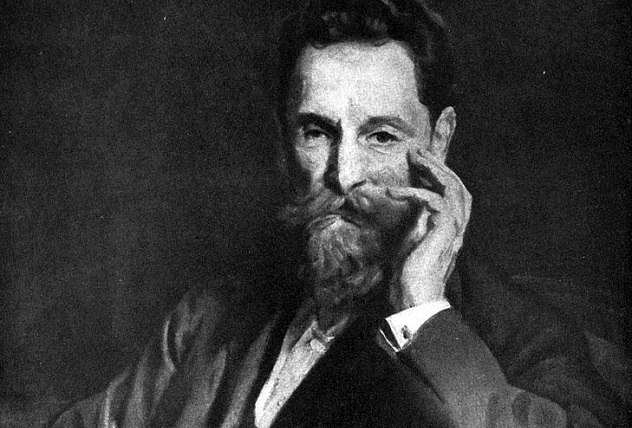
While Joseph Pulitzer would lend his name to the awards that honor excellence in journalism, he didn’t even speak English until he began writing for St. Louis’s Westliche Post in 1868 at the age of 21. Pulitzer was born in Mako, Hungary on April 10, 1847, and shortly thereafter, his family relocated to Budapest following his father’s retirement from the grain merchant business. He was fluent in both French and German and had an extensive education from both private schools and tutors.
After his father passed away and his mother remarried, Pulitzer decided at age 17 to give other countries a try. He dreamed of becoming a soldier, but he was declined by the British Army’s India contingent, Napoleon’s Foreign Legion, and the Austrian Army due to chronic health problems. He was finally granted his chance to serve when he met a recruiter for the United States’ Union Army in Germany. He served for a year in the Lincoln Cavalry, ending up in St. Louis after his service was complete. While working a series of odd jobs, he taught himself English using the city’s library and was eventually hired by the city’s German paper, starting a career that would make his name synonymous with journalism.
4Levi Strauss

Blue jeans have long been part of the classic American wardrobe, but the man who was responsible for the pants that changed how the country dressed was born Loeb Strauss in Buttenheim, Bavaria on February 26, 1829. The youngest of seven, Strauss left Bavaria for the United States after the death of his father in 1846.
Two of his brothers were already in New York City, where they had established a dry goods business. Strauss began learning the business, and when the Gold Rush hit California, he headed west. Instead of trying to make his fortune looking for gold in the mountains, though, the savvy businessman capitalized on the opportunity by selling supplies to the countless people who were roughing it in the wilderness.
Strauss soon established a western branch of his family’s dry goods company, which he named Levi Strauss & Co. Ten years later, he entered into a partnership with Nevada tailor Jacob Davis, who had invented a revolutionary new way of reinforcing pants but needed help securing a patent and getting his idea off the ground. Originally known as “waist overalls,” the durable pants were a major success, and the rest is history.
3Gene Simmons

The music of Kiss has long been a staple of American rock, but its most recognizable member wasn’t born in the United States. In fact, he didn’t learn to speak English until he was eight years old. Gene Simmons was born Chaim Witz in Haifa, Israel to Jewish parents on August 25, 1949. His mother, Flora, was the only member of her family to survive the Holocaust and moved to Israel after she was freed at 14 years old. There, she met and married a carpenter named Yeichel Witz.
After their son was born, the Witzs’ marriage fell apart, and Yeichel moved to Tel Aviv while Flora and the boy moved to New York City in 1958. Eight-year-old Chaim was left in the care of various relatives and babysitters while his mother worked. He became fluent in Hungarian, Spanish, and Turkish by listening to his caregivers and learned English from television and comic books. He changed his name to the much more American-sounding “Gene” and soon developed an interest in music after watching the British Invasion unfold on American television.
2Charlize Theron

There are few stories of triumph over tragedy in Hollywood that come close to matching that of Charlize Theron. The versatile actress might look like the girl next door, but she was born and raised in Johannesburg, South Africa to a father of French descent and a mother of German descent. She was sent to boarding school at the age of six to train as a dancer, though her career would eventually be cut short by a knee injury. Boarding school was an escape from a rocky family life. Her father, a life-long alcoholic, had targeted both his wife and daughter with relentless verbal abuse for as long as they could remember.
His violence came to a head one weekend when Charlize was home from school. He came home drunk and armed with a shotgun, threatening to kill his young daughter. He fired the shotgun into her room, but she was saved by her mother, Gerda, who grabbed her own handgun and killed her drunken husband. It was ruled that Gerda acted in defense of herself and her daughter, so she never faced any charges for the incident. Gerda soon implored her daughter to leave South Africa to make a better life for herself. She encouraged Charlize to enter a modeling contest, which she won, leading first to a move to Italy and then enrollment in a ballet school in New York City. There, she was discovered by a talent manager and cast in her first movie.
1Charlie Chaplin
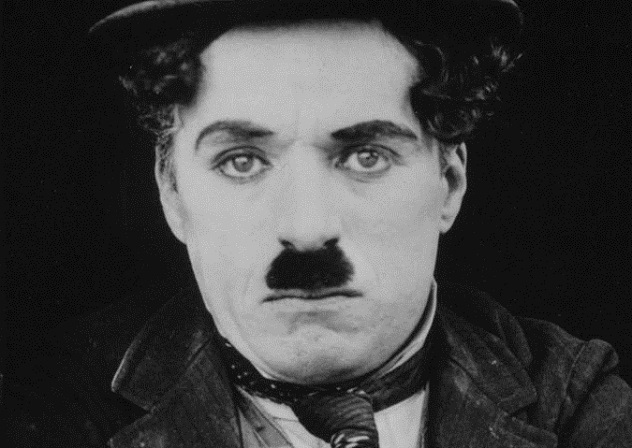
Charlie Chaplin is one of the most recognizable figures of old Hollywood, and what’s more American than that? Born in London, England, Charles Spencer Chaplin grew up poor. His parents were both performers in English music halls, but their relationship was an unhappy one. It ended when Chaplin and his brother were still young, leaving the boys in the care of their sweet but unreliable mother, Hannah. She suffered from chronic illness, which eventually ended her career when she lost her voice partway through an act. Her son Charlie, who was five years old at the time, was pushed onstage to fill in for her. It was the first time he performed in front of a live audience.
After the end of her performing career, Hannah supported her sons by working as a seamstress, but she was eventually committed to a mental institution after a psychotic breakdown. Chaplin was on his own, in and out of workhouses and attending the Hanwell School for Orphans and Destitute Children. He never forgot his first taste of the stage, however, and was soon starring in pantomime acts across London. He was already a well-established performer when he signed on with Fred Karno’s pantomime group and traveled to America for the first time. Once there, he signed a contract with Keystone Pictures for an unprecedented $150 per week.

![10 Worst Massacres Of African-Americans [DISTURBING IMAGES] 10 Worst Massacres Of African-Americans [DISTURBING IMAGES]](https://listverse.com/wp-content/uploads/2019/10/vote-150x150.jpg)
